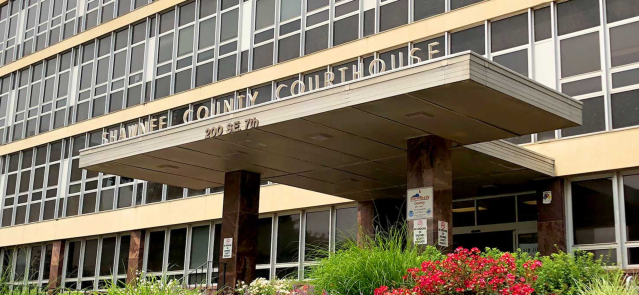Stay ahead of the curve as a political insider with deep policy analysis, daily briefings and policy-shaping tools.
Request a DemoMaricopa County Posts Another Round of Unofficial Results from the 2024 Primary Election
July 31, 2024 (Phoenix, Arizona) – Maricopa County Elections has posted additional unofficial results from early ballots received through Monday, July 29 that were tabulated today.
641,625 ballots are now being reported, which represents 26.52 percent of eligible voters. Over 95,000 early ballots received on Election Day must be signature verified and processed before they are counted, and results updates can be expected daily until every legal ballot is counted. There are also approximately 3,100 ballots that require curing. Election workers continue to process provisional and other ballots that require additional verification before they can be counted. The last day voters can cure a signature issue or provide identification for a conditional provisional ballot is Sunday, August 4, 2024, at 5 p.m. Find Maricopa County’s election results at Results.Maricopa.Vote .Loop 202 Santan Freeway widening project scheduled to start Aug. 9
Kelly, Rounds Introduce Bipartisan Bill to Enhance Consumer Literacy and Confidence in AI
Kansas temporarily stops enforcing impersonating election official law
Kansas has agreed to temporarily stop enforcing its impersonating an election official law, clearing the air for groups that said they feared accidentally committing a crime when helping people register to vote.
Shawnee County District Court Judge Teresa Watson granted the temporary injunction this week after the parties reached an agreement, which calls for a status conference to take place after the election in November.
“This will allow the parties to focus on preparing for the coming election and to confer regarding a joint proposal to the court for resolving any remaining issues in this litigation,” the agreement said.
The League of Women Voters of Kansas, Loud Light, Kansas Appleseed Center for Law and Justice, and the Topeka Independent Living Resource Center filed a lawsuit in 2021 against Secretary of State Scott Schwab and Attorney General Kris Kobach.
In 2021, the Legislature passed a bill that made it a felony for people to represent themselves as an election official. The contested portion of the law says it’s illegal to engage in conduct that “gives the appearance” or “would cause another person to believe” someone is an election official.
On May 31, the Kansas Supreme Court reversed the Shawnee County court’s decision not to grant an injunction, ordering the lower court to reconsider the request. The Supreme Court unanimously ruled the plaintiffs had a “substantial likelihood” of prevailing.
Representatives mentioned after the May ruling that volunteers limited their assistance because of the law’s vagueness.
Loud Light on X celebrated the temporary injunction that ended “1,125 days of unconstitutional voter suppression.”
“We are fired up and ready to register thousands of young Kansans to vote again,” Loud Light President Davis Hammet said Wednesday in a statement. “For 1,125 days, Kansas’ democracy suffered irreparable harm under the Legislature’s most recent voter registration suppression scheme.”
The ruling came after an effort by the Legislature to clarify the rule fell short of a veto override.
House Bill 2618, which would’ve stopped state agencies from accepting certain federal election funds, also would have added intent as an element of the crime of impersonating an election official.
“It clarifies that you have to intend to deceive in order to be guilty of the crime of impersonating an election officer,” Rep. Pat Proctor, R-Leavenworth, said on the House floor in April. “It’s not just based on the perception of the person who thinks you are an election officer.”
Bryan Richardson is the managing editor at State Affairs Pro Kansas/Hawver’s Capitol Report. Reach him at [email protected] or on X @RichInNews.
NRCC Statement on AZ-08 Primary Election
Pima County Procurement Department wins Excellence Award for 20th consecutive year
Rokita, Nieshalla demand IU prove no state funds are going to Kinsey Institute
Attorney General Todd Rokita and State Comptroller Elise Nieshalla on Wednesday called for Indiana University to prove it is not sending taxpayer dollars to its Kinsey Institute.
In a letter to Indiana University President Pamela Whitten and the university’s board of trustees, Rokita and Nieshalla said a “lack of transparency” has led them to question whether the university is complying with last year’s budget bill, which prohibits state funds from going to the institute.
During the 2023 legislative session, Rep. Lorissa Sweet, R-Wabash, authored an amendment outlining the prohibition, which Republicans kept in the final version of the bill. On the House floor, she claimed the institute’s research on sex, gender and reproduction and the work of its founder, Alfred Kinsey, exploited children and contributed to crimes. Democrats argued the university’s funding was held to appease conservatives’ cultural agenda.
“More than a year has passed since IU assured the public and state officials that it would follow the law, yet we have seen no indication that any serious actions have been taken,” Rokita said in a Thursday news release. “IU is not above the law, and Hoosiers deserve answers.”
In March, Indiana University pledged to submit a proposed plan with the Indiana State Board of Accounts to ensure compliance with the Indiana law.
The university “has engaged with the State Board of Accounts to address compliance with IC-21-20-6, using standard accounting practices in regard to budget reporting,” Mark Bode, an Indiana University spokesperson, told State Affairs in an email Thursday.
Last year, Indiana University initially mulled making the Kinsey Institute, which merged with the university in 2016, a separate nonprofit that would continue to operate at the university’s Bloomington campus.
After the plan received pushback from Kinsey faculty, staff, affiliates and university students, the university considered creating a nonprofit that would fund and manage limited, mostly administrative functions at the institute. The functions “have historically been supported by the university’s general fund,” portions of which might include money from the state, according to an FAQ released by the university. The university’s board of trustees tabled the latter proposal in November.
At Whitten’s recommendation, the board abandoned the idea in March. The university said in a news release that it, instead, would work with the Indiana State Board of Accounts to comply with the Indiana law.
In their letter, Rokita and Nieshalla claimed the university has not implemented an accounting plan.
“With the absence of evidence per state law that tax dollars are no longer supporting the Kinsey Institute, we are calling for necessary financial information to prove adherence to state statute,” Nieshalla said in the release.
Rokita and Nieshalla asked the university for confirmation that no tax dollars have gone to the institute since July 1, 2023, when the law took effect. They also requested written explanations, if applicable, of any instances of noncompliance, an accounting plan that abides by the law and a list of all funding sources for the institute since July 1, 2023.
Contact Jarred Meeks on X @jarredsmeeks or email him at [email protected].
Full results of school carbon monoxide, radon testing survey pending
Twenty school districts in North Carolina have not reported data from a General Assembly-mandated carbon monoxide alarm and radon testing survey.
The Department of Public Instruction projects $85 million will be preliminarily needed to complete the project.
Nathan Maune, director of the Department of Public Instruction’s Office of School Facilities, said his office received an 83% response rate from public school units, except charter schools, and a 47% response rate from agency, lab, regional and statewide schools.
“We hope to give you a further update and complete the report once we’ve obtained as much data as we reasonably can,” Maune said, adding his office is working with Department of Public Instruction regional directors to get more data.
The provision, added to the 2023 state budget, stated that the State Board of Education should report the survey findings to the Joint Legislative Education Oversight Committee by Dec. 15, 2023. The report should include the number of school buildings without adequate carbon monoxide detectors and the cost of radon testing equipment for all classrooms. The legislation is meant to bring public schools into compliance with Section 915 of the North Carolina State Building Code’s Fire Prevention Code.
Over 2,500 school campuses and 7,300 individual school buildings have been surveyed so far. Though each facility was designed and constructed to the standards at the time, Maune said the legislation recognizes that building codes change every several years.
A draft report that Maune’s office submitted to the State Board of Education on Wednesday outlined preliminary findings of $40 million for nearly 38,000 carbon monoxide alarms and $45 million for radon testing in every classroom. Maune said that characterizing the statewide cost was difficult and that the district-by-district table should not be taken verbatim because it’s still in draft form.
Board members agreed they’d like to initiate a similar survey for charter schools. Maune said the survey link could be made available to those schools.
For questions or comments, or to pass along story ideas, please write to Matthew Sasser at [email protected] or contact the NC Insider at [email protected] or @StateAffairsNC
Schools superintendent defends decision to drop AP African American Studies class, says it violates state law
Georgia School Superintendent Richard Woods said he dropped a college-level high school course about African American studies from the state’s class offerings because it violates a state law regulating the teaching of sensitive subjects such as race, gender, sex and history.
Woods’ explanation comes a week after educators, lawmakers, civil rights groups and other critics slammed him for not including an Advanced Placement African American Studies class as part of the 2024-25 school year curriculum. Critics called it an assault on students’ rights and educators’ ability to teach.
“After reviewing the content, it was clear that parts of the coursework did violate the law,” Woods said in a written statement that appeared on the Georgia Department of Education’s website. “As with most states with laws like Georgia on this issue that have raised concerns, the most glaring violation is on the topic of intersectionality. If the Advanced Placement course had presented a comparative narrative with opposing views on this and other topics, an argument could be made that the course did not violate Georgia law. For me, this has always been about following the law.”
Continue reading “Schools superintendent defends decision to drop AP African American Studies class, says it violates state law”



